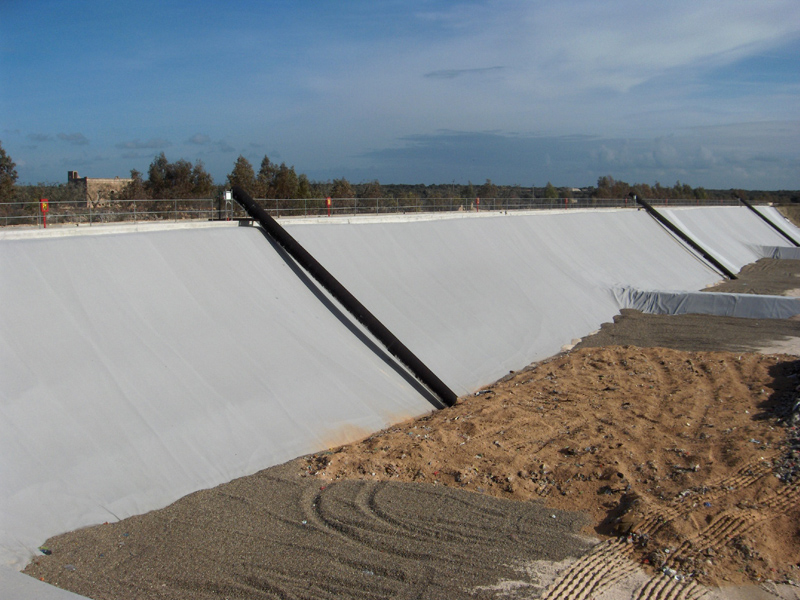The landfill is a site for the disposal of municipal solid waste and all the human-created waste (construction debris, industrial scrap, etc.) that cannot be recycled, gasified, sent for mechanical and organic treatment or used as fuel in the waste to energy plants.
Waste must be treated following a wide range of steps in order to guarantee the highest environmental and public health protection level. In particular, the protection of all the environmental “matrices” that can be impacted by the landfill must be guaranteed: aquifers, soil around the site and the air.
To this end, it is necessary to comply with requirements provided for by the current regulations:
- Provide a protection barrier on the bottom and the side walls of the landfill, in order to prevent leachate (the liquid that drains from the landfill caused by precipitation percolating through the waste deposited) from spilling in the soil surrounding the landfill reaching the aquifers and causing their pollution;
- Provide appropriate facilities for recovering the biogas produced in the landfill, in order to prevent emissions in the air with their following negative impacts;
- Provide, at the end of the landfill “life cycle”, a proper cover that will isolate it from the external environment, in order to avoid any contact between the landfill waste and the local environmental “matrices”;
- Cover, on a daily basis, the waste deposited and compacted in the landfill according to regulations, in order to guarantee better health conditions in the site management.
Every type of waste must be allocated to the appropriate landfill sites that, according to the regulation D. Lgs. 36/2003 can be of three different classes:
- landfill for non-hazardous waste;
- landfill for hazardous waste;
- landfill for inert waste (demolition, construction, quarry debris).
Regulations cover all construction and management requirements, including controlling and monitoring plans providing for a set of activities aiming to analyse chemical, physical, hydrogeological, climatic and topographic parameters to be determined periodically with a given frequency for measurements.
Law, considering the concept and definition of waste, identifies a range of different crimes connected to waste disposal and, among them, the illegal waste management, waste abandonment, illegal dumping activities.
In Italy, unfortunately, there are many illegal landfills, which are polluting and dangerous, whose construction is usually linked to mafia activities and whose goal is to make profits through the waste illegal trafficking.
They take advantage of secluded areas, not necessarily far from residential areas, dumping huge amounts of every type of waste or they use legal landfills to dump waste not authorised for them, with high risks for the local territory and people health.
A controller landfill destined for municipal or special waste, either non-hazardous or hazardous, managed in compliance with the law does not cause any environmental problems and can be considered like a normal industrial facility, although with specific criticalities.
An illegal landfill, instead, managed according to criminal intents, carelessly about the environmental protection and people health, can cause serious damage, and for this reason, it is very important for the police forces and the local governments to perform a thorough control of the territory.



